Guilt Free Motoring?

I love internal combustion. The sound of my Accord is Salieri to the Boxster’s Mozart, while the distinctive putt-putt of the VW [Real] Beetle is like some endearing melody from childhood, or maybe the rap version of Eensy Beensy Spider (yes, there is such a thing). The ICE is probably the most refined machine on the planet. In contrast, electric drive has all the elegance and soul of a washing machine. Nonetheless, I think global heating threatens civilization, and so I drive with guilt. In so far vain attempts to assuage that guilt, I skim anything dealing with capturing and sequestering carbon, in the so far vain hope that in this version of the Iliad, Achilles won’t die, and I’ve attended talks on the subject at places like MIT. I’ve even concocted wild schemes for personal absolution like cutting my trees and burying them in the peat under my backyard, and growing new trees. Nothing helps. And forget spewing particulates into the atmosphere, because even if that mitigated global heating without bringing on a new ice age–fat chance that we’d get it just right–it would do nothing about ocean acidification from CO2, something that will likely kill off most of our seafood. But now comes a little ray of hope from the 10 January issue of New Scientist.
The magazine describes a variety of schemes for scrubbing carbon, and sucking it right out of the air. And while several of these require such high temperatures–800-900 degrees Celsius–that the net benefit is likely scant, one can do the job at just 40oC. Its inventor, Klaus Lackner of Columbia U, thinks the cost of collecting the CO2 could be low enough ultimately to sell it to greenhouses. Fruit and vegetable growers pay up to $300/ton for concentrated CO2, in order to boost plant growth.
David Keith of the University of Calgary tells New Scientist that once governments price carbon high enough to justify investments in capture and sequestration, it may become commercially feasible to “…capture CO2 and combine it with hydrogen to make fuel,” eliminating net carbon emissions by recycling element number 6. Then we could all drive easier and breathe easier at the same time.

I'm a freelance journalist covering science, medicine, and automobiles.
More by David C. Holzman
Latest Car Reviews
Read moreLatest Product Reviews
Read moreRecent Comments
- Jkross22 When I think about products that I buy that are of the highest quality or are of great value, I have no idea if they are made as a whole or in parts by unionized employees. As a customer, that's really all I care about. When I think about services I receive from unionized and non-unionized employees, it varies from C- to F levels of service. Will unionizing make the cars better or worse?
- Namesakeone I think it's the age old conundrum: Every company (or industry) wants every other one to pay its workers well; well-paid workers make great customers. But nobody wants to pay their own workers well; that would eat into profits. So instead of what Henry Ford (the first) did over a century ago, we will have a lot of companies copying Nike in the 1980s: third-world employees (with a few highly-paid celebrity athlete endorsers) selling overpriced products to upper-middle-class Americans (with a few urban street youths willing to literally kill for that product), until there are no more upper-middle-class Americans left.
- ToolGuy I was challenged by Tim's incisive opinion, but thankfully Jeff's multiple vanilla truisms have set me straight. Or something. 😉
- ChristianWimmer The body kit modifications ruined it for me.
- ToolGuy "I have my stance -- I won't prejudice the commentariat by sharing it."• Like Tim, I have my opinion and it is perfect and above reproach (as long as I keep it to myself). I would hate to share it with the world and risk having someone critique it. LOL.



















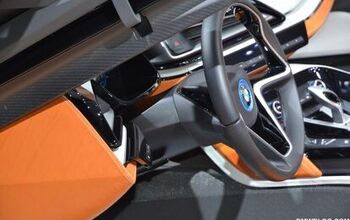
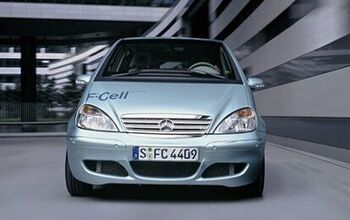
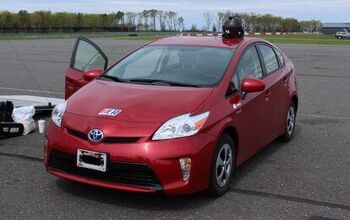
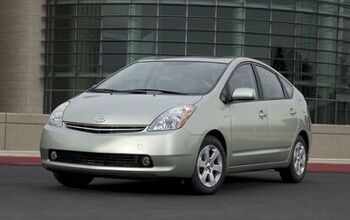

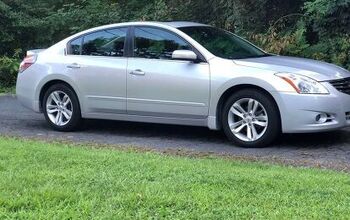









Comments
Join the conversation
@ Bluecon Do you not understand or are you being deliberately contrary? If you have year after year ABOVE an average (no what sequence they occur in) the average will rise. This site contains a more simplified version of the statistical analysis of the data.
I'm skeptical of AGW. Not that I think it's necessarily wrong, but that the case has not been proven to me. But the anti-AGW people are just so... well, what's a word I can use that doesn't count as flaming? CO2 is at historically low levels right now compared with a few millions of years ago when atmospheric CO2 was multiples of what it is right now the ocean was absolutely filled with fish, corals and what have you. Yes, life existed on Earth back when we had an atmosphere of mostly CO₂. Yes, even in the oceans. But it is not life that the man on the street would recognize. And that life in the oceans would take a few million years to re-adapt to the new equilibrium before it would be useful to humans at all.